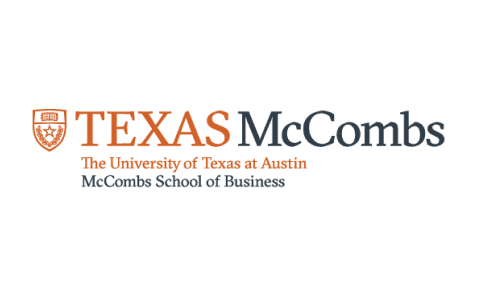Algorithms in C
Learn Algorithms in C from basics in this free online training. This free Algorithms in C language course is taught hands-on by experts. Learn about Recursion, Binary search, Selection Sort, Quick Sort, Merge Sort & a lot more.
Instructor:
Mr. Faizan Parvez
Ratings
Level
Learning hours

Learners
Skills you will learn
About this course
This Algorithms in C course will walk you through an Algorithm and its analysis. It will provide you knowledge regarding recursion, what recursion is, the types of recursions, the difference between recursion and iteration.
This Algorithm in C Language course also explains search algorithms such as Binary search, sorting algorithms such as Insertion sort, Merge sort, Quicksort, and much more.
Algorithms are a vital part of technical education and the field. The internet that you use today is so efficient because efficient algorithms are applied to work smoothly. Algorithms can be applied using various languages. But for a beginner, C is the best choice to start with.
For attaining your career in Software Engineering, take a look at India’s highest-rated Online Software Development Courses offered by Great Learning. We also have other PG and Degree programs. Get excellent Knowledge from very skilled and experienced mentors and get hold of the Certification.
Course Outline
Hive is a data warehouse used to support interaction between the user and HDFS. This course will give you a demonstration using sample problem statements for your better understanding.
 UPGRADE
UPGRADE
Recommended university programs
What our learners enjoyed the most
Skill & tools
66% of learners found all the desired skills & tools
Our course instructor

Mr. Faizan Parvez
IT & Software Expert
Frequently Asked Questions
Will I receive a certificate upon completing this free course?
Is this course free?
What is an algorithm in C?
An algorithm is a set of well-defined instructions that helps you in solving problems. C is the best choice for beginners who want to implement algorithms.
What are the types of algorithms in C?
Types of Algorithms Includes :
Simple Recursive Algorithms Greedy Algorithms
Backtracking Algorithms Branch and Bound Algorithms
Divide and Conquer Algorithms Brute Force Algorithms
Dynamic Programming Algorithms Randomized Algorithms
How do you write an Algorithm in C?
Algorithms are not bound by one programming language. It is a set of well-defined instructions which can be implemented using any programming language. In the case of the C programming language, beginners can learn and understand these algorithms better.
Other IT & Software tutorials for you
Algorithms in C Language
What is an Algorithm?
-
It is a step-by-step approach to solving a particular problem.
-
It gives a crisp solution.
-
It can be understood by non-technical people as well.
-
There are possibilities that a problem can have one or more algorithmic approaches for its solution.
-
Algorithms are free of programming language constructs.
Algorithmic Analysis
-
Analysis helps in identifying the optimal Algorithm.
-
Analysis aids in understanding the trade-off of time and space complexity.
Types of Analysis
There are different types of analysis:
-
Best case
-
Average case
-
Worst case
Qualities of Good Algorithms
-
There should be precisely defined input and output.
-
Algorithms must be in an effective way where they can solve problems compared to many other solutions.
-
Each step in an Algorithm should be unambiguous.
-
An algorithm shouldn’t be written in code but should be written in a way where you can attempt to write it in any code.
Algorithm Complexity
-
Space Complexity : The amount of memory space required by the life cycle of an algorithm represents the space complexity. It is an extra memory that an algorithm requires for its implementation. Space complexity S(P) of any algorithm P is S(P) = C +S(I), where C is the fixed one or a constant and S(I) varies based on the instance characteristic I.
For Example,
Algorithm: adding two numbers SUM(a,b)
Step 1: Start
Step 2: c ← a+b+10
Step 3: Stop
Here, you have one constant and three variables. Thus, the space complexity will be S(P) = 1+3.
Space Complexity has low priority criteria in the selection of optimal algorithms.
-
Time complexity : Time Complexity determines the total number of unit operations undertaken to solve a particular problem. Unit operation is an operation that is independent and can’t be broken down into simpler operations. Thus, the time complexity is the time required by the algorithm to run to its completion. Numerically time requirements can be denoted as T(n). T(n) represents the number of steps in an algorithm where each step has taken constant time. Time Complexity has the higher priority criteria in the section of optimal Algorithm.
Recursion
-
Recursion is about function calling itself. It comes in handy when the function is breakable into sub-problems. Many data structures follow these recursive methods.
-
While using the recursive function, you should make sure that you define an appropriate exit condition from the function; otherwise, it may slip into an infinite loop.
-
Recursive functions are advantageous in solving many mathematical problems such as finding the factorial of a number, generating Fibonacci series, etc.
Steps of Recursion
-
Base Condition
-
Logic
-
Recursive Call
Tail Recursion
Tail recursion makes use of recursive functions as the last statement of its function. No task left after the recursive call makes it easier for the compiler to optimize the code. No activation record maintenance is required here. This is the faster approach to Recursion.
Non-Tail Recursion
Here the last statement of the function is not a recursive function. It is a slower recursive approach as compared to tail recursion. Non-Tail Recursion needs to maintain the activation record.
Direct Recursion
A function calling itself is called Direct Recursion. This represents a one-step recursive call which is called inside its own function body. Only one function is involved here.
Indirect Recursion
It is a mutual recursion where function f1 calls f2 and f2 calls f1, representing an Indirect Recursion. These functions make use of two-step recursive calls. More than one function is involved in Indirect Recursion.
Binary Search Algorithm
Binary Search is one of the searching techniques. It can be used on a sorted array. This searching technique adapts the divide and conquers strategy, and search space is always reduced to half in every iteration. This is a very efficient technique for searching, but it needs some order on which partitions of the array will occur.
-
Binary Search - Iterative Algorithm
binarySearch(arr, size)
loop until beg is not equal to end
midIndex = (beg + end)/2
if (item == arr[midIndex] )
return midIndex
else if (item > arr[midIndex] )
beg = midIndex + 1
else
end = midIndex - 1
-
Binary Search - Recursive Algorithm
binarySearch(arr, item, beg, end)
if beg<=end
midIndex = (beg + end) / 2
if item == arr[midIndex]
return midIndex
else if item < arr[midIndex]
return binarySearch(arr, item, midIndex + 1, end)
else
return binarySearch(arr, item, beg, midIndex - 1)
return -1
Some of the Sorting Algorithms are:
-
Selection Sort Algorithm
-
Insertion Sort Algorithm
-
Quick Sort Algorithm
-
Merge Sort Algorithm
Why take Algorithms in C Course?
Optimal Algorithms are the vital goal of all the developers in the industry. Because C language is more appropriate for Beginners in algorithms to learn and understand, this Free course provides you the same opportunity.
This Algorithms in C course contains 2.5 hours of video content. You will briefly get introduced to what algorithms are, their analysis, and the various types of complexities such as time and space. Recursion concepts are talked about in-depth.
Algorithms in the C course also walk you through various searching and sorting algorithms such as binary search, quick sort, merge sort, and much more are discussed with examples to understand it better. You can also attend the Quiz provided at the end of the course.
Get hold of this Free Algorithms in C course offered by Great Learning which strengthens your basic concepts on algorithms, and you can also receive the course completion certificate at the end. Enroll in this Course Now!
























.jpg)







.jpg)




